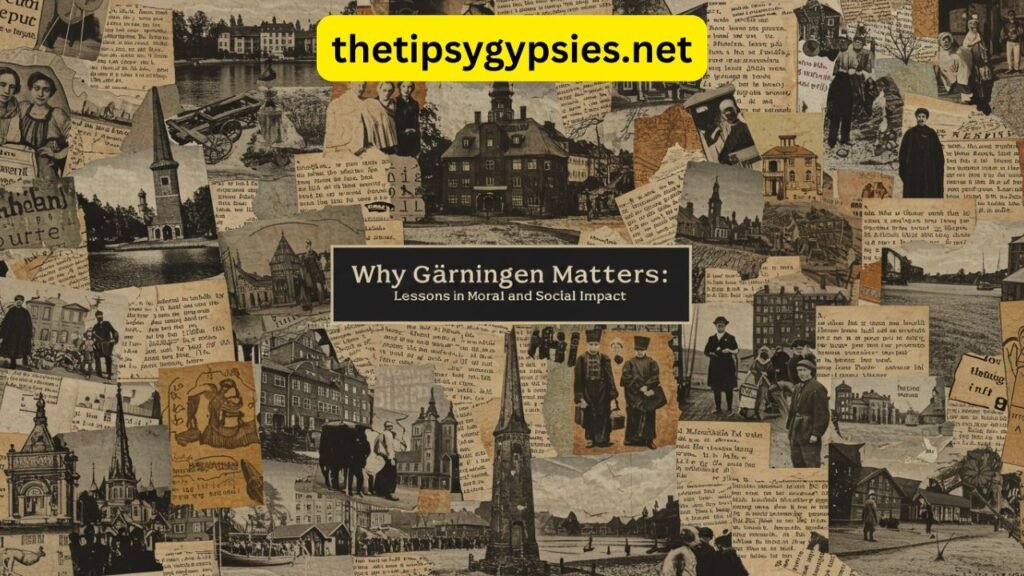Introduction: Understanding Gärningen
The term gärningen holds a special place in Scandinavian languages, symbolizing an action, deed, or undertaking that carries both significance and consequence. It is not merely an act; it embodies intention, responsibility, and the impact it creates on oneself and others. Whether in personal decisions, social interactions, or legal matters, recognizing the meaning of gärningen can provide deeper insight into human behavior and societal expectations.
Grasping the concept of gärningen encourages mindfulness and ethical awareness, highlighting that every action has a ripple effect. From small everyday gestures to major life choices, the essence of gärningen shapes outcomes and reflects character.
Origins and Historical Context of Gärningen
Historically, it has roots in Old Norse culture, where deeds were closely linked to personal honor and social reputation. In these societies, actions were meticulously observed, and individuals were often judged by the nature of their gärningen.
In literature and folklore, it frequently appears as a central theme. Heroes were celebrated for noble deeds, while wrongdoers faced societal repercussions. This historical context demonstrates how the concept has influenced moral codes, legal systems, and cultural norms over centuries.
Categories of Gärningen
Understanding it requires looking at its various forms, which span moral, legal, and social dimensions.
1. Moral Gärningen
Moral gärningen involves actions guided by ethics and values. Positive deeds, like helping someone in need, reflect moral strength, whereas harmful actions show ethical lapses. Society often measures individuals by their moral gärningen, emphasizing accountability and integrity.
2. Legal Gärningen
Some deeds have legal implications, and these are referred to as legal gärningen. Acts such as fulfilling contracts, obeying laws, or committing offenses are all evaluated under legal frameworks. Recognizing the legal dimension of it helps maintain order and fairness in communities.
3. Cultural and Social Gärningen
Certain actions carry cultural weight, preserving traditions or reinforcing societal values. Participating in festivals, supporting local initiatives, or contributing to collective welfare are examples of social gärningen. Such deeds strengthen community bonds and promote shared cultural identity.
Psychological Perspective on Gärningen
Psychologists highlight that gärningen reflects human cognition, decision-making, and motivation. Every deed stems from a combination of personal beliefs, emotional states, and environmental influences. Understanding why individuals act as they do offers insight into predicting behavior and fostering self-awareness.
Moreover, the perception of one’s it impacts mental well-being. Positive deeds often lead to feelings of satisfaction and social recognition, while negative actions may trigger guilt, remorse, or conflict. Mindful consideration of it can enhance emotional resilience and personal growth.
Gärningen in Modern Context
In contemporary society, the concept of it extends to digital interactions, corporate ethics, and global responsibilities. Online behavior, professional conduct, and environmental actions can all be seen as forms of gärningen.
For example, companies demonstrating sustainable practices perform a large-scale it with societal and environmental impact. Social media amplifies public scrutiny, making every action more visible and accountable. This modern interpretation emphasizes responsibility, transparency, and conscious decision-making.
Practical Examples of Gärningen
Real-life examples help illustrate the diverse implications of gärningen:
Everyday Kindness: Simple acts like helping neighbors, volunteering, or offering support reflect positive moral gärningen.
Cultural Preservation: Teaching local traditions or participating in communal events highlights social gärningen.
Legal Responsibility: Honoring agreements, following laws, or reporting crimes represents legal gärningen.
Each example showcases how it influences personal, social, and legal spheres, emphasizing that actions are never isolated.
Importance of Gärningen
Understanding it is vital for ethical decision-making and harmonious social interaction. It encourages reflection on consequences, fosters empathy, and motivates responsible behavior. By evaluating one’s deeds, individuals can cultivate integrity, improve relationships, and contribute positively to society.
In education, teaching the significance of it promotes ethical reasoning and critical thinking. In professional settings, it strengthens organizational culture and ethical standards. Ultimately, embracing the concept of it leads to more thoughtful, conscious living.
Conclusion: The Enduring Value of Gärningen
It represents the profound connection between action, intention, and consequence. From moral and legal considerations to social and cultural significance, it shapes how individuals interact with the world around them.
Acknowledging the importance of it encourages mindful choices and accountability. Every action whether small or monumental has potential to influence lives, shape communities, and leave lasting impressions. By embracing gärningen, we cultivate a world guided by responsibility, empathy, and integrity.






